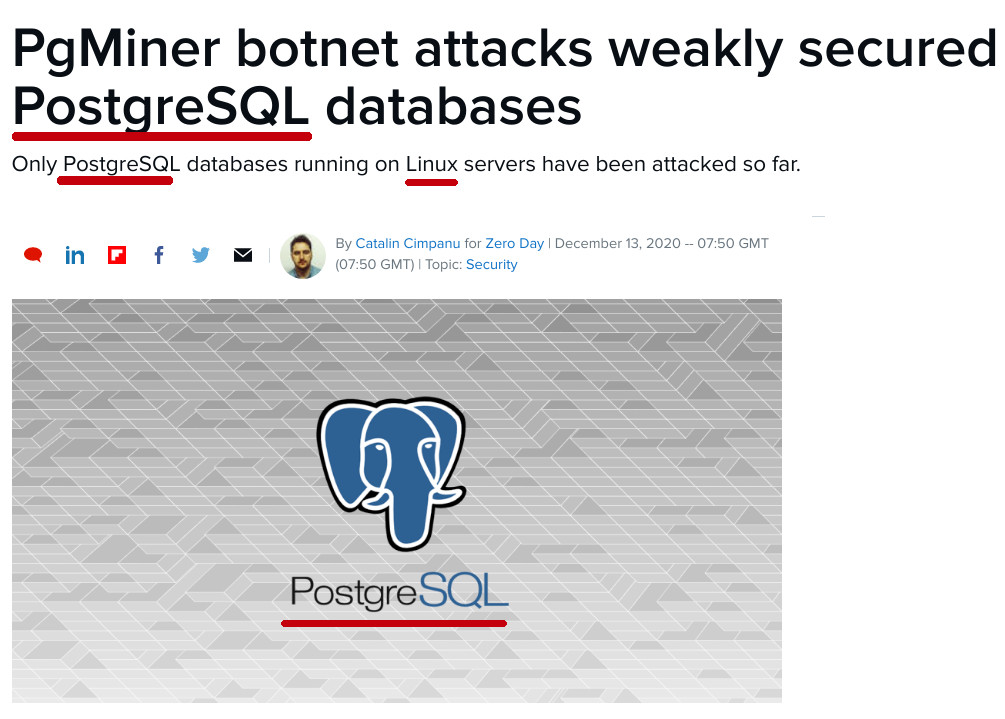

 Summary: As the latest example shows, the art of perception management (or "reality distortion") at ZDNet is up on display 12 months after its parent company collapsed (rendered defunct on December 4th, 2019), reminding people of the real agenda or the true bosses at the helm
Summary: As the latest example shows, the art of perception management (or "reality distortion") at ZDNet is up on display 12 months after its parent company collapsed (rendered defunct on December 4th, 2019), reminding people of the real agenda or the true bosses at the helm
THERE'S shoddy journalism, there's intentionally bad journalism, and then there's ZDNet -- a class of its own! They're defaming Free software people (making stuff up or saying the exact opposite of what's true), blaming Windows security problems on "Linux", and hiring professional liars like Catalin Cimpanu to do what they did in other sites for a number of years. The goal is clearly not to inform readers but to mislead them and moreover attract them using click-bait junk.
"The goal is clearly not to inform readers but to mislead them and moreover attract them using click-bait junk."In the above example, which is new, it's the latest from Cimpanu; notice how he's trying to attribute to "Linux" an issue that doesn't have anything to do with "Linux" or even "PostgreSQL"; it's about incompetent administrators whose systems are (mis)configured to give away control. So how come we end up talking about "Linux" or even "PostgreSQL"? How come ZDNet continues to ignore back doors in Windows, which constantly kill more patients than COVID-19 ever did? The tactic is called "reality distortion" or perception management. To quote Wikipedia on perception management in Journalism:
Journalism is a field that organizations, companies, governments, and individuals will attempt to use to manage the public's perception of that specific organization, company, government, or person. Perception management through journalism has been seen especially in regard to government propaganda and war. This becomes problematic when governments promote certain ideas that they want the public to believe through journalism, without the journalists and media properly attributing their sources.
Another issue in the journalism field is between the corporate business of keeping a news organization afloat versus the ethics of reporting and reporting the truth. Just as with any other major corporation or even small businesses there are conflicts between the reporters and the executives within a news organization. Reporters with strong ethics will want to run all stories that are "newsworthy", but some of those stories may be censored by editors because the executives have sent a note down the chain specifying that a certain story may or may not run.